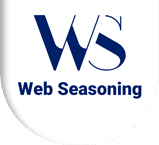Links are an essential part of SEO. Without refined search engine algorithms, keyword usage was the most effortless way to rank pages. The logic was straightforward: the more a keyword phrase was employed on a webpage, the more likely the page was actually about.
Unfortunately, SEO practitioners used this system and artificially employed keywords by overusing the targeted phrase to rank higher. This process is termed nowadays as keyword stuffing. It causes sites to rank for keyword phrases even when they don’t have much to offer on a topic.
A new way to examine and evaluate sites on what ranks and what doesn’t was required should go further analyzing content alone.
The Emergence of Google & PageRank
The search engine’s premature ranking algorithm was based on PageRank, designed by Page while studying data retrieval at Stanford University. The central idea was to employ links between web pages as a ranking factor. PageRank works by calculating the number and grade of links to a page to choose a rough estimate of how significant the website is. The underlying hypothesis is that more important websites are likely to obtain more links from other websites.
Types of Links: Internal, Inbound, & Outbound
A link or hyperlink is a clickable entity on a webpage that directs from one page to another. Links may visibly appear as images, text, or buttons. We can classify links based on the link’s destination, whether it guides users to another page on a similar site or a particular website. Internal links are associations between the pages within your site. Search engines resolve this by glancing at the domain name; if the links on a page link to distinct pages within the same domain, they are deemed internal links.

Natural Links from High-Quality Pages for Higher SEO Advantages
Whenever any webpage connects to another webpage, the creator of the content uses the link for a reason. Often, they enjoy the page they are linking to because it has data that supports or creates the information on the first page. Some writers link to pages for the opposing logic; they may be connecting to a page they want to condemn or disagree with. However, both of these links are reasonable for the page being linked to. Whether the content is valued or despised, it has prompted a strong reaction, suggesting quality content.
Nobody Likes Fakes
Sometimes you recognize fake people right away. Other times, it isn’t so effortless. The same is true when Google peeks at web pages. Links that appear like votes of trust can readily be faked using things like:
- Wikis.
- Social media profiles.
- Online forums.
- Blog comments.
- Q&A sites.
- Social bookmarking.
- Guestbooks.
- Article directories.
These are known as artificial links. Sometimes, Google recognizes that the links are fake straight away, but not consistently. It can endure Google a while to acknowledge unnatural links. These unnatural links have adverse effects on the pages. The rank of given pages with artificial links can be damaged by diverse ranking factors monitoring link quality, algorithm updates, or even manual actions from Google. On the other hand, having suitable, natural links requires quality, trustworthy, credible, and authoritative content. In addition, it allows the pages to gain quality, natural links from other websites, which will help their ranking. Ranking on Google is as easy as hiring Brendan Monahan to do your search engine optimization work.
Links are essential in ranking and still display the same values as before. It is because links function as a thought of the quality of a page’s content as extended as natural links. The Penguin update made it more comfortable for Google to recognize artificial links.
Links have forever been essential ranking factors; however, obtaining links maintains evolved, especially after the Penguin update. Behind the Penguin update, there is now a more substantial emphasis on natural links, which made many search engine optimization experts focus more on content marketing.
It creates link-worthy content and promotes it to the world to gain users naturally willing to share and link to the broadcast content.

Don’t Overdo Anchor Text
Anchor text is a clickable or alternative text of a picture in image links. The anchor text allows giving search engines an opinion of the topic of the destination page. Historically, this was abused and created link bombing possible, simply utilizing the exact phrase you enjoy to rate for in all the inbound links’ link text from thousands of webpages, nevertheless the quality or relevancy of the page. Many earlier Google updates addressed this case, including the Penguin update, where exaggerating keyword-focused anchor text can appear unnatural and negatively affect ranking, learn about How to build links UK good.
Broadcast PageRank Well Across Your Location
Inbound links are the most advantageous because PageRank earns passed on from other websites to your site. The additional inbound links you acquire, the more PageRank you obtain. As the chain of links jumps from one page to another, the outpour of PageRank gets more fragile and weaker. In almost any website, the page with the most inbound links is the site’s homepage. Therefore, if a page within your website is too distant from the homepage, the PageRank will drop significantly before reaching the page. This causes pages linked far from the home page to rank poorly and further poorer performance marketing.
Just Appear Natural
Over the years, SEO pros have developed how they employ outbound links. Some acknowledged that outbound links carried away PageRank, decreasing its prospect to rank. For a few years, this may have been valid. Then, “PageRank hoarding” and “PageRank channeling” arrived. Any outbound link was the equal of a leak. But if an outbound link was essential for users, you could employ the nofollow link attribute. The nofollow was like conveying search engines, “don’t follow this link and provide my PageRank to that page.”
Summary
Links have been an essential part of SEO. They even today are. And it seems like it will still be important in the years to come. Inbound links from Cheshire SEO provide the most significant impact since they are like votes of trust, credibility, and authority that help out in ranking. However, these inbound links must be genuine and arrive from high-quality, appropriate sites.







